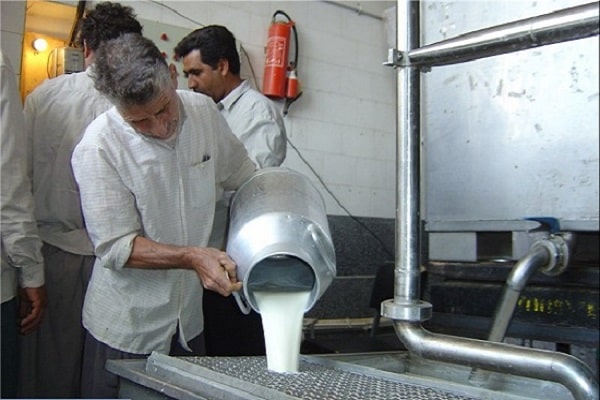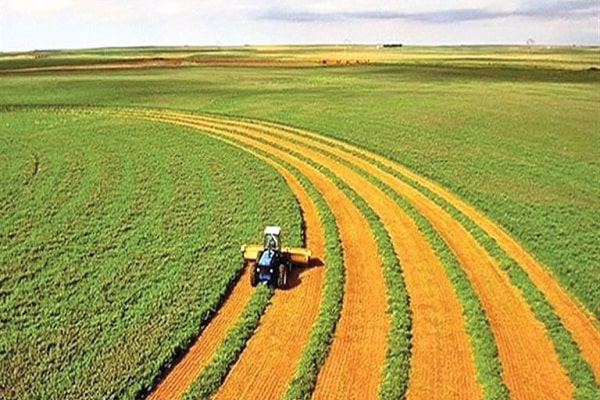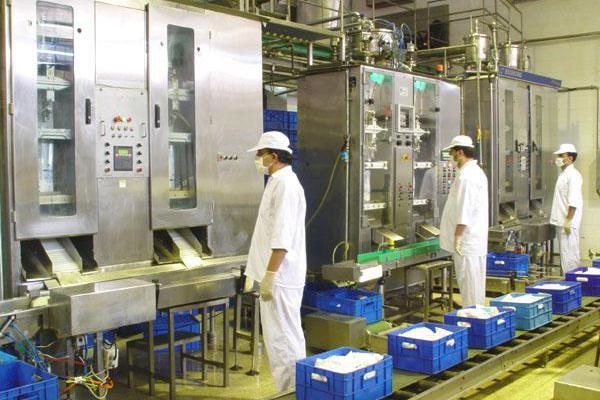Five corona damage to the world food industry
One area of the economy that has been hit hardest by the outbreak of a new coronavirus called Covid-19 is the food industry. As people around the world quarantined, virtual world social media was flooded with news of food shortages in supermarkets. Food producers, meanwhile, have warned that their stockpiles have been depleted and are now forced to dispose of some of them as waste. newspaper has examined five pathways through which the corona virus has infected the food supply chain around the world.

Disposable Milks:
Due to the complete closure of coffee shops in some countries, excessive milk supply has occurred as one of the real side effects of the Covid-19 pandemic. The American Dairy Producers, DFM, the largest dairy cooperative in the United States, estimates that farmers have to consume 3.7 million gallons (equivalent to 14 million liters) of milk per day due to supply chain disruption.
This was not only the case in the United States, but dairy producers in the United Kingdom also asked the government to help them with the problem of overproduction. Peter Alves, head of the Royal Syndicate of British Dairy Producers, has said that about five liters of milk a week is in danger of being destroyed. He added: “Producers in this field, who used to have very low profit margins, now have to receive less money for their production or destroy their surplus production, a situation that has put a lot of pressure on them.”

Agricultural products are wasted:
Corona holidays affect all aspects of agriculture. Some manufacturers tried to rely on meeting the demand of ordinary customers, but changes in market demand and surplus inventory remained a major problem in this sector. The New York Times, which interviewed some American producers, cited as an example a poultry farm that had to destroy 750,000 unheeded eggs per week.
The magazine also interviewed an onion farmer, who said he had to let most of his produce rot because he could not distribute it properly and could not store it. In India, tea growers warn that the quarantine decree has turned the first crop of a special tea grown in the highlands of India under the name of Darjeeling into waste, and there are concerns about a second harvest.

Shortage of sufficient workers:
Beyond the two problems of overproduction and the difficulty of delivering the product to small consumers, farmers in many parts of the world continue to face a labor shortage crisis. Voluntary quarantines, social distance protocols, and corona vacations in countries have disrupted normal international flow in the industry.
In Germany, an exception was made to the Corona holiday law to allow thousands of Romanian and Polish workers to fly in to help harvest the spring crop, especially strawberries and asparagus. In Britain, a campaign called “Food for the Nation” was launched to encourage domestic workers to voluntarily make up for the shortage of manpower in order to prevent the dumping of agricultural products.

Changing Shopping Habits:
The Covid-19 pandemic has led to changes in our shopping list. The UK, for example, has seen a surge in demand for flour over the past few weeks as quarantines have become more baked.
According to new statistics published by BFM TV, French shoppers have been buying more organic and healthier foods since the outbreak of the Corona virus due to fears. Experts believe that perhaps one reason is that French shoppers these days are buying more from smaller local shops and may also want to boost their immune system by eating healthier foods.

Warehouse inventory is intact:
Consider, for example, British shops and restaurants. By shutting them down by government order, many of the products they consume become waste. In many places it is not yet clear how long the holidays will last, and this is despite the fact that some goods have the best expiration date, which is only a few weeks away. This means that many of the goods stored in the warehouses will become unusable in just a few weeks.

buy cytotec online with paypal
generic 300 mg bupropion price
canadian pharmacy celebrex
buy generic arimidex
bactrim drug tretinoin gel online
propranolol buy uk
online pharmacy birth control pills